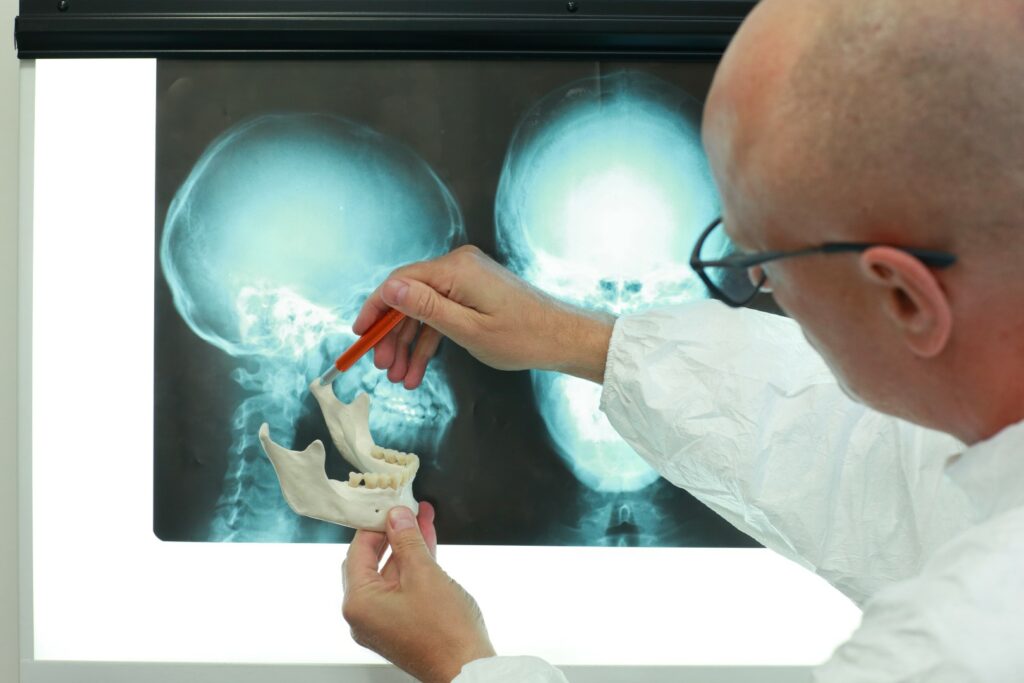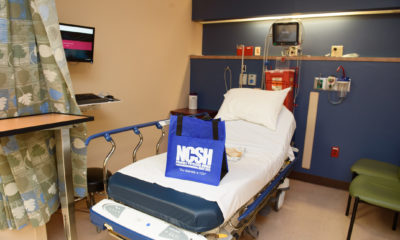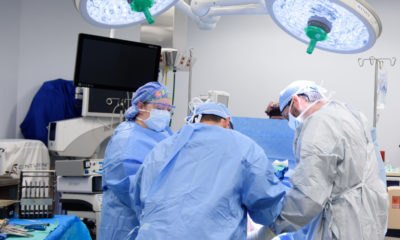Access your own patient portal, provided by NCSH.
Oral & Maxillofacial Surgery
Which Conditions May Require Jaw Surgery?
Wed, Jan 24, 2024

Jaw surgery, also known as orthognathic surgery, is a type of corrective surgery used to fix structural or functional disorders of the jaws and face. These disorders can cause difficulties chewing, speaking, and even breathing. Jaw surgery corrects irregularities of the upper and lower jaw bones and realigns the jaws and teeth to improve the way they work. It can correct many dental and skeletal abnormalities, including an improper bite, difficulty chewing or speaking, facial imbalance, or jaw joint pain.
What kind of conditions may require corrective jaw surgery? Quite a few—and you may be surprised to learn some of the conditions it treats.
Conditions That May Require Jaw Surgery
 Typically performed by an oral and maxillofacial surgeon, jaw surgery involves cutting the bone of the upper or lower jaw and reshaping it. These surgical procedures treat a wide range of conditions, some of which may be present at birth (congenital) or caused later in life by injuries or other medical conditions.
Typically performed by an oral and maxillofacial surgeon, jaw surgery involves cutting the bone of the upper or lower jaw and reshaping it. These surgical procedures treat a wide range of conditions, some of which may be present at birth (congenital) or caused later in life by injuries or other medical conditions.
Congenital conditions include:
- Overbites: When the top teeth extend past the bottom teeth
- Underbites: When the lower jaw is larger than the upper jaw, leading to a misaligned bite
- Crossbites: When the top and bottom teeth don’t align properly or bite correctly
- Cleft palate or lip: When the roof of the mouth and upper gum line do not form properly, resulting in an opening in the palate or roof of the mouth.
- Recessed chin: When the chin is underdeveloped.
Conditions caused by injuries, growth, or other medical conditions include:
- Fractures to the lower or upper jaw
- Cysts or tumors
- Unbalanced facial appearance
- Obstructive sleep apnea: A dangerous sleeping disorder that occurs when you experience breathing pauses during sleep.
Symptoms of sleep apnea include:
- Snoring
- Difficulty staying asleep
- Excessive daytime sleepiness
- Morning headaches
- Irritability
In severe cases, individuals may also experience forgetfulness or difficulty concentrating due to poor-quality sleep.
Obstructive sleep apnea is commonly treated with a CPAP (continuous positive airway) machine that helps keep the airway open during sleep with a continual flow of air. In severe cases, it can be treated with a corrective jaw surgery called maxillomandibular advancement surgery (MMA), where the upper and lower jaw bones are repositioned to relieve the airway obstruction.
- TMJ (temporomandibular joint) disorders: This disorder occurs when the temporomandibular joint, which is located on either side of the face and connects the lower jaw to the skull, becomes inflamed due to a variety of factors such as:
- Jaw injury
- Teeth grinding or clenching, or teeth that don’t fit together correctly
- Arthritis in your jaw joint
- Stress
TMJ symptoms include:
- Facial pain and pain and tenderness in the jaw joint
- Headaches
- Difficulty opening and closing your mouth
TMJ is often treated with pain medications, muscle relaxers, mouth guards, steroid injections, physical therapy, and ultrasound therapy. However, surgery may be recommended if relief isn’t achieved through these treatments.
Most Common Types of Jaw Surgeries
- Maxillary osteotomy: Surgery on the upper jaw
- Mandibular osteotomy: Surgery on the lower jaw
- Bimaxillary osteotomy: Surgery on both jaws
- Genioplasty: Surgery on the chin
- TMJ surgery
- Trauma reconstructive jaw surgery: Surgery after an injury or accident
The Benefits of Corrective Jaw Surgery
While the results may vary depending on the individual’s condition and the surgical techniques used, jaw correction surgery typically offers:
- Improved facial appearance and confidence
- Reduced pain and muscle tension in the jaw area
- Improved bite alignment
- Improved ability to chew food and speak more clearly
- Improved airway function for those with obstructive sleep apnea
Where To Have Corrective Jaw Surgery
Whether it’s for underbite surgery, jaw reconstruction surgery, or cleft palate repair, there’s one place to turn in the Raleigh-Durham area: North Carolina Specialty Hospital. Our oral and maxillofacial surgeons are among the leading experts in their field in the region. They use the latest techniques and state-of-the-art procedures to help patients achieve their most successful outcomes and receive the compassionate, patient-focused care they deserve.
If you or a loved one needs orthognathic surgery, contact us to learn more about our surgeons and recommended treatment plans at North Carolina Specialty Hospital.
RELATED NEWS

What Conditions Require Jaw Surgery?
About Corrective Jaw Surgery and Who Needs It Orthognathic surgery, also known as jaw or jawline surgery, corrects problems with the jaw bones that affect function, appearance, or both. Some people need corrective jaw surgery…
Continue Reading

What Is Le Fort Surgery?
How the Le Fort Osteotomy Corrects Misalignments in the Jaw Le Fort surgery is an orthopedic procedure most often used to correct deformities and misalignments in the midface. It is a safe method that has…
Continue Reading

Your Questions About Corrective Jaw Surgery Answered
For many people, correcting misaligned teeth means wearing braces for a time. Some people may need minor dental procedures, like tooth extractions, to correct their bite and straighten their teeth, but for the majority, the…
Continue Reading
Stay Current
Educational Articles & More
View News & Press